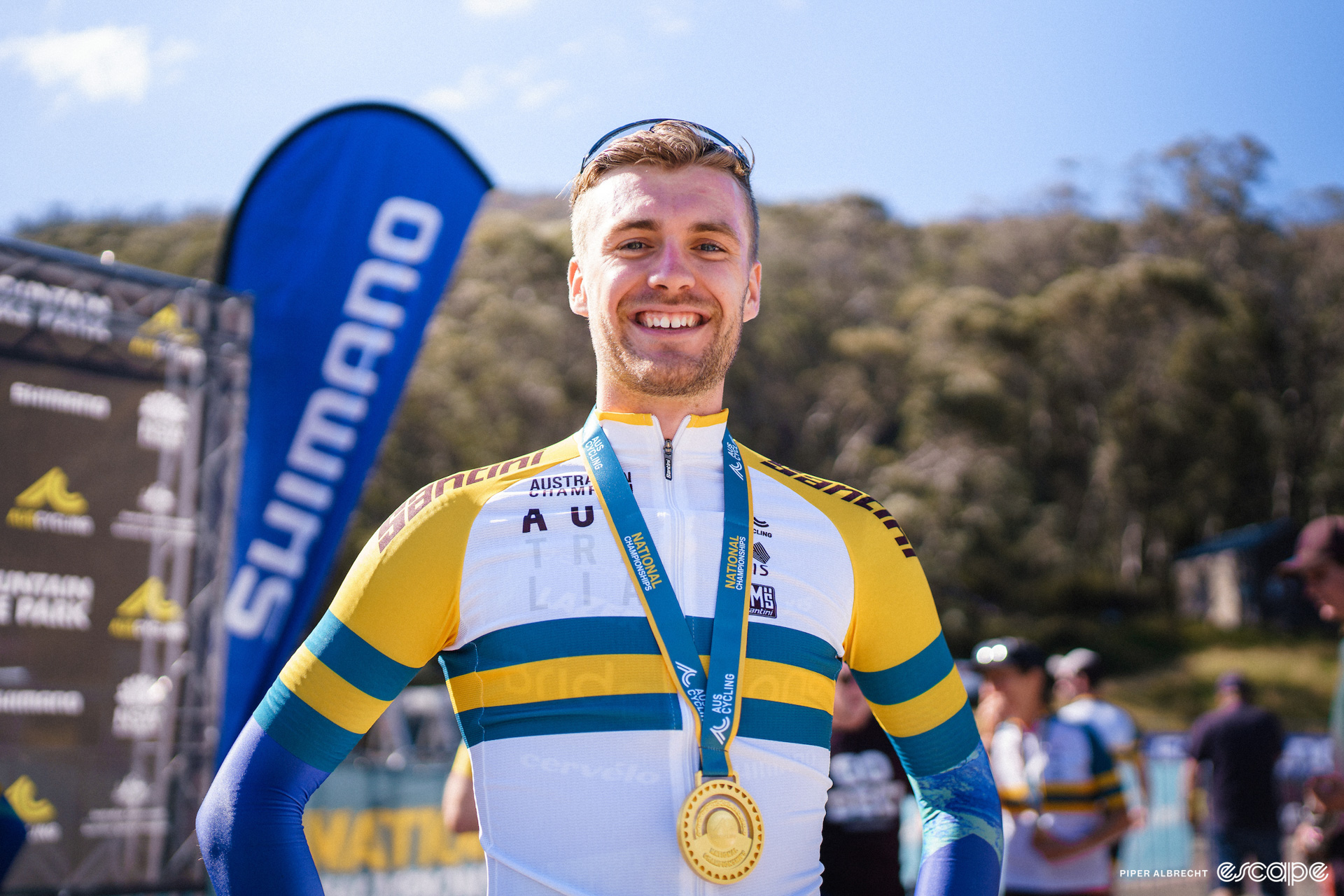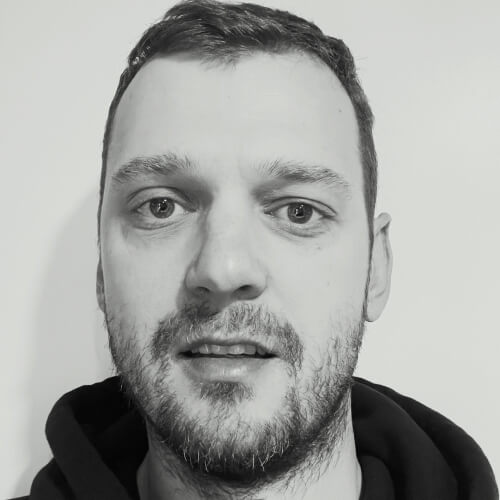Season 2023 is a big one for Australian mountain bike champion Sam Fox. This year the 22-year-old has stepped up from the U23 ranks into the elite field with last month’s Nové Město World Cup being his first top-level race against the world’s best. Fox started well back in the field – thank to being a first-year elite – and crossed the line in 67th place.
This weekend Fox will take part in round 2 of the UCI MTB World Cup series in Lenzerheide, Switzerland. In the weeks between World Cups he’s taken a couple of wins at smaller Slovenian races which helped earn him all-important UCI points.
Chatting to Escape Collective from the French ski town of Morzine this week, Fox gave his impressions of stepping up to the big leagues, what it’s like tackling a European racing block with almost no on-ground support, and what he hopes the sport has in store for him in the years to come.
***
Matt de Neef: Nové Město was obviously your first World Cup racing in the elite field. What was it like stepping up? How big were the differences?
Sam Fox: It was a real rangefinder, I think; definitely a bit of an eye-opener as well. It was interesting stepping up to under 23 for the first time, and it took a while to find where you fit into that field. I think it will take a little while to find where I fit into this field as well.
I love the course in Nové Město. I don’t always have the greatest races there but it’s a course that should suit me so I was pretty keen for it. But starting back in the field, again, is always a shock, especially once you get used to starting at the front. And so you kind of feel like you’re moving up, but you don’t.
You always seem to go into the singletrack … unless you’ve had some cracker start where you’ve managed to sneak up inside somewhere. But for the most part, you feel like you’re moving up and then you go into the singletrack and you’re almost exactly where you were. And then you end up running around for a lap anyway.
Then following that, I think I probably didn’t have my best legs, but having said that I also didn’t have my worst legs. So it was good to get a feel of where I sit in the field on a just-below-average day. And that was kind of around the 60s. So that was interesting and it showed that you really do need to do something special to move up in those fields. Everyone there is pretty quick.
So the pace is noticeably quicker?
Yeah, absolutely. I think I was probably still around the top 10 for the under 23s; I’d stepped up that year. But there’s world champions from the last 10 years or so that have all stepped up and all been chasing gains for a long time. So they can ride pretty well when they want to.
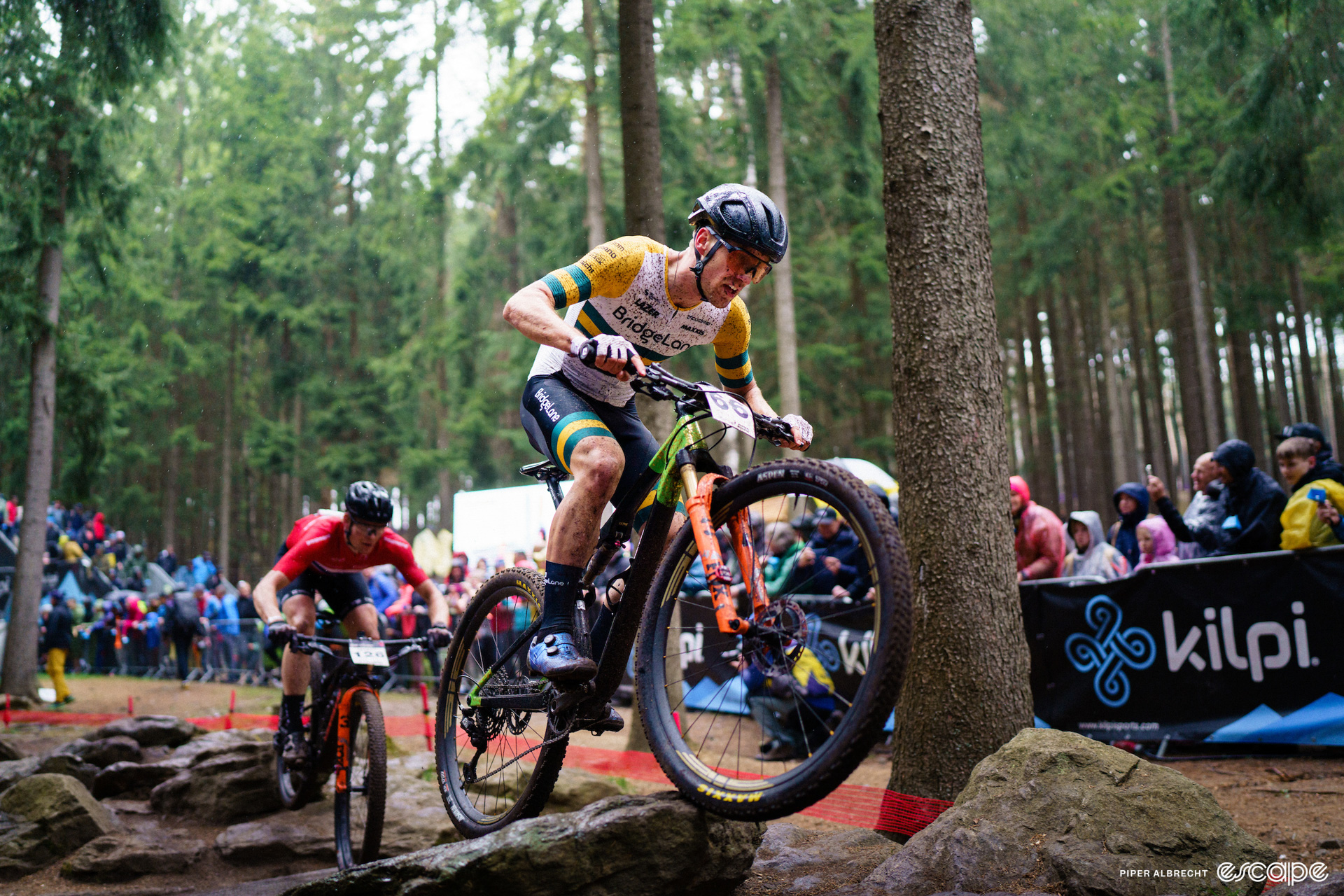
For the benefit of readers who are more familiar with road racing, can you talk a bit about how important UCI points are and how that relates to starting positions?
So for mountain bike, you need UCI points to start towards the front. In Australia, it’s pretty easy. We have small fields so even if you start at the back, you’re probably on the third row. But for World Cups, there’s 100-120 riders and if you’re starting 10 rows back, you just never make it to the front. There’s only so much time you have before it strings out in the singletrack. So the UCI points are pretty important to bump you up towards the front end and give you a chance to win.
I was talking to someone who did some analysis of the World Cups and I think for 70% of the winners, the winning formula was determined by whether you started on the front row. So you can be a pretty incredible athlete and start a few rows back and you just don’t have a chance.
So for someone like you that’s starting further back in the field, how do you make progress from race to race? Is it a case of getting the points that you can by finishing 60th or so? Or is it doing other smaller races to try and get UCI points?
You do need to do smaller races for sure. We have a few in Australia, but not with great points. So you’ve gotta come over and either race over here [in Europe] or go over to America and pick up some points there. There are scatterings of smaller races and you kind of need to find a little block of them to do well at.
But once you get into that top 40 in a World Cup, that’s when you can really start to jump up the rankings. The top 40, of course, you get the short track start [at World Cups]. And you can jump up right to the front there if you have a really good race. But even if you don’t, being in that top 40, if you move into the top 30 you get good points there at a World Cup and you can start jumping up the rankings that way as well.
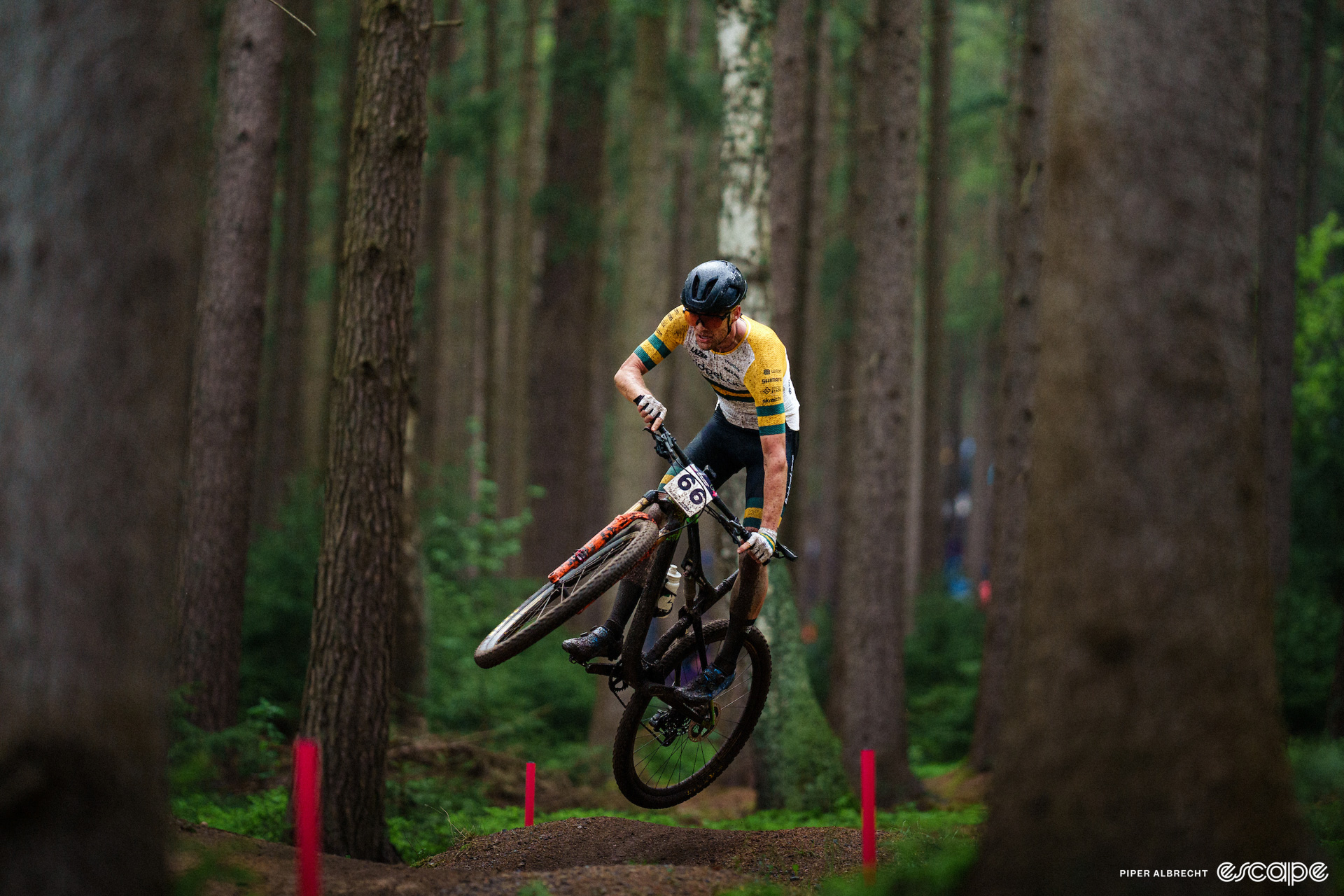
So something like the races that you won in Slovenia in recent weeks, do they have much of an impact in terms of your ranking?
Yeah, that had a huge impact. I think I jumped up maybe 20 spots in the world ranking in two weeks. That’s really important, finding those smaller races. And a lot of them still have some really good riders, but just not such a depth. So you can start picking up some decent points with podium spots.
So tell me about those Slovenian races. Did you go specifically looking for points, or to help build form ahead of Lenzerheide? And how did the races go from your perspective?
Yeah, it was a bit of both to be honest. I came over to Europe in what was really good form at the time. I did a really good early-winter training block in Australia and came over here with good legs. And so I thought I would just spend this as a pure race block. I’m only staying in Europe for six weeks for this block and so I went ‘I’ll fit as many races in as soon as I can. And then I’ll go home and find form without having the distraction of being in Europe again.’
So I managed to convince a friend to do the dumb idea of staying in Czech for a week, doing a race on a Saturday, driving six and a half hours, doing a race on a Sunday, and then staying down there and doing another race the next week. And it worked out really well.
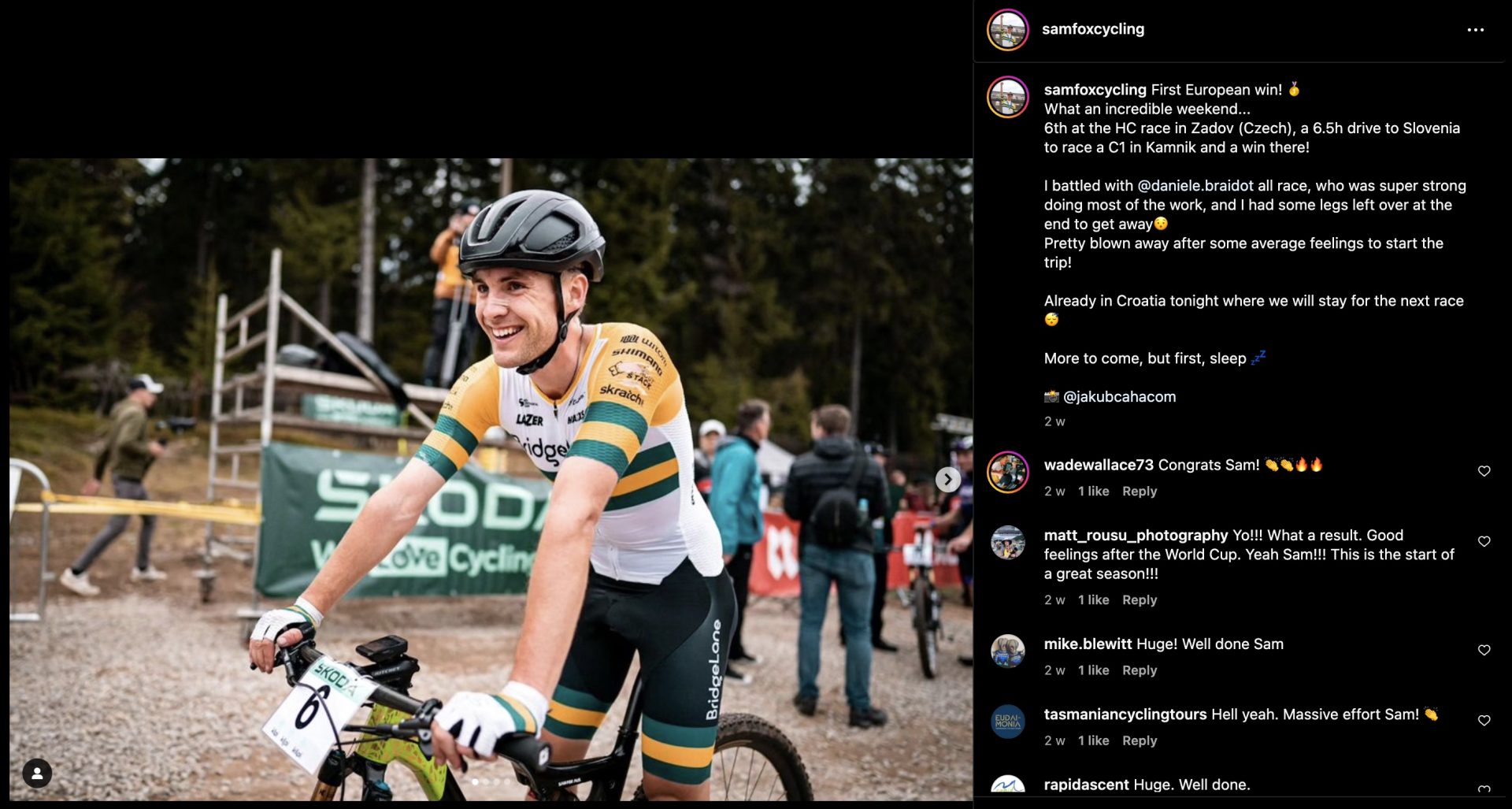
We had a HC [second-tier, one-day] race in Czech, and that was alright. Again, not my best legs – still kind of takes a bit of time to find your way in Europe each year you come over, but I’m starting to get there and so I rolled in sixth there. That was just a bit of a glimpse of hopefully what I can accomplish and gave me a bit of motivation for the next day.
So yeah, we jumped in the car and drove six and a half hours to Slovenia – four and a half that night and the next two in the morning – and then found some lovely Slovenians to do feedzone support for us. We don’t have a soigneur with us for this block. They were lovely and helped out and I managed to win that race against Daniele Braidot and some other riders. And then yeah, we just hung out. We actually stayed in Croatia for the week, got a little bit of training done, and then did another race in Slovenia, the following weekend.
What does a couple of wins like that do for your confidence coming into the bigger race at Lenzerheide this weekend?
Yeah, it was really good. Obviously Daniele Braidot was the kind of big figure there at that first Slovenia race and to at least be competitive with him, even if he might not have had his best day, is a really good sign. He’s absolutely a top-20 rider – he’s had World Cup podiums before – so to be competitive with someone like that is a good sign. It means I just have to get into the swing of things over here and make sure that the World Cups are my best races. You just can’t afford to slouch at those ones.

You’ve been with Team BridgeLane this year and last year. How much of a say does the team have on your riding schedule? Are they saying you have to do a certain amount of road, and a certain amount of mountain bike? Or do you have more flexibility in terms of what you want to do?
They’ve been really good actually. Essentially, ACJ [team manager Andrew Christie-Johnston – ed.] has just said we can schedule the mountain bike wherever we want and if we can squeeze some road in here and there, that’s great. But even if I don’t, it’s not too upsetting for him.
He’s got an incredible road squad this year. They’re really strong guys and there’s good depth in the team so they don’t really need me on the road. And as much as I love to help the boys, obviously Olympics is my biggest goal for the time being. So it’d be great to kick that off and then I can jump back across to the road and help them out more.
You mentioned you don’t have a soigneur with you at the moment. What sort of support do you have over in Europe? Does the team provide much for you while you’re over there?
So this block, it’s just me. They’ve got a car for me and it’s actually been really easy and smooth over here. I’m used to doing things completely by myself. In fact, I think one trip over here I camped and caught trains everywhere so compared to that this is pretty luxury.
But yeah, support-wise, it’s just myself and then you find helpers along the way. It’s a pretty friendly community, the mountain bike community, so I think I’ve had a different feeder at each race so far. And it’s great; you meet some people on the way.
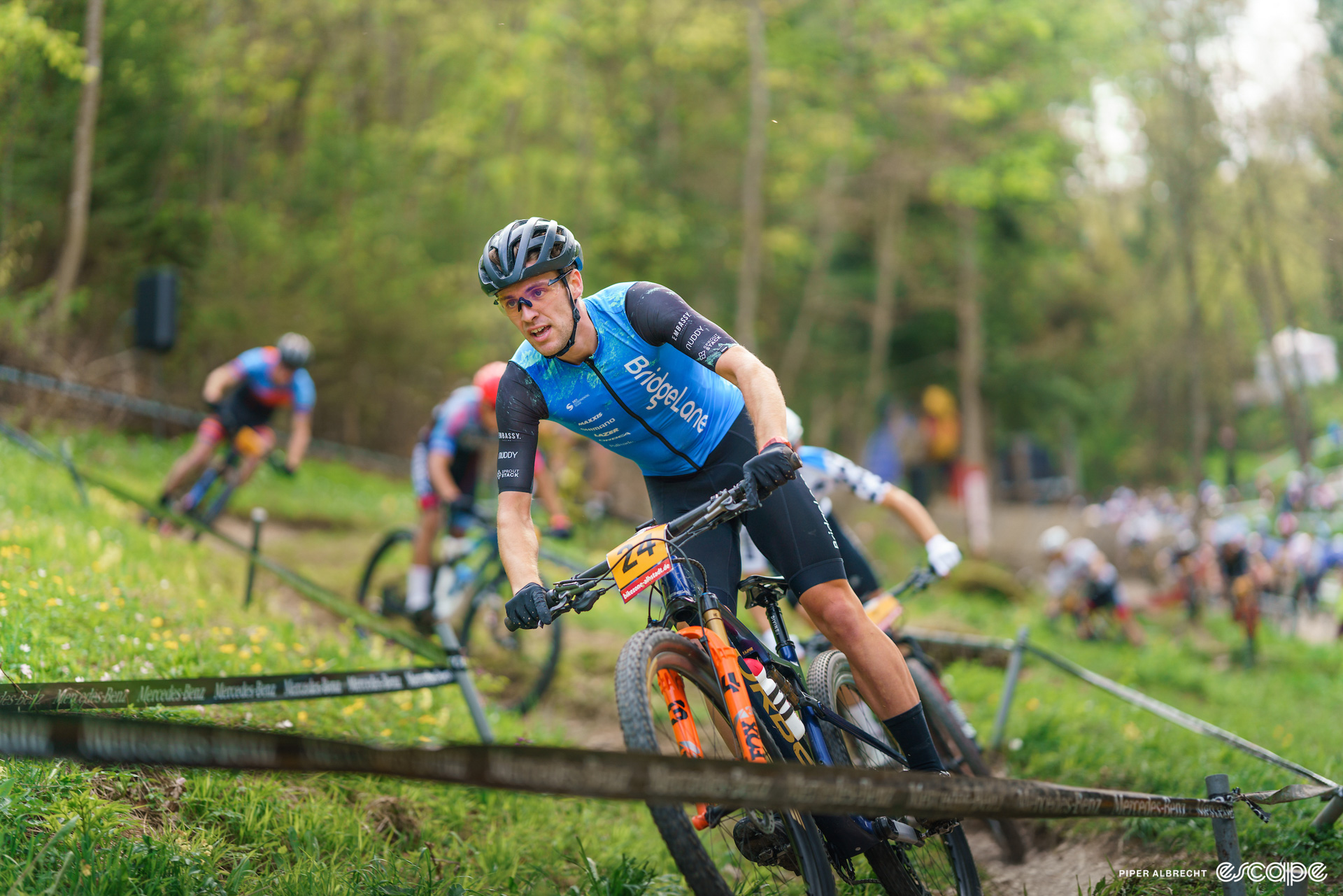
What’s your relationship like with road racing at the moment? Do you enjoy the mountain biking more and just use road racing to fill in the gaps in your schedule?
I mean, I love mountain bike – mountain bike’s where the heart’s at. But road is obviously great for training for me. You can build form when you’re racing on the road, whereas racing on the mountain bike you just lose it gradually.
And also, I love not having the pressure on me at road races. Because it’s not my initial discipline, I don’t really have to perform. I’m just there to help the guys on the team to try to get a result. And so I find that really relaxing and kind of beneficial. It’s just nice to go and help someone out at a race and see them succeed.
Do you have any ambitions of doing the road thing full time later on?
Not at the moment. I could definitely be convinced to move over to the road. I think if I spend a bit more time doing it I’d probably improve a lot. There’s a lot of tactical knowledge and even just feeding out of the car that I still need to get better at. But yeah, I think for now, at least until the Olympics, mountain bike’s the big goal.
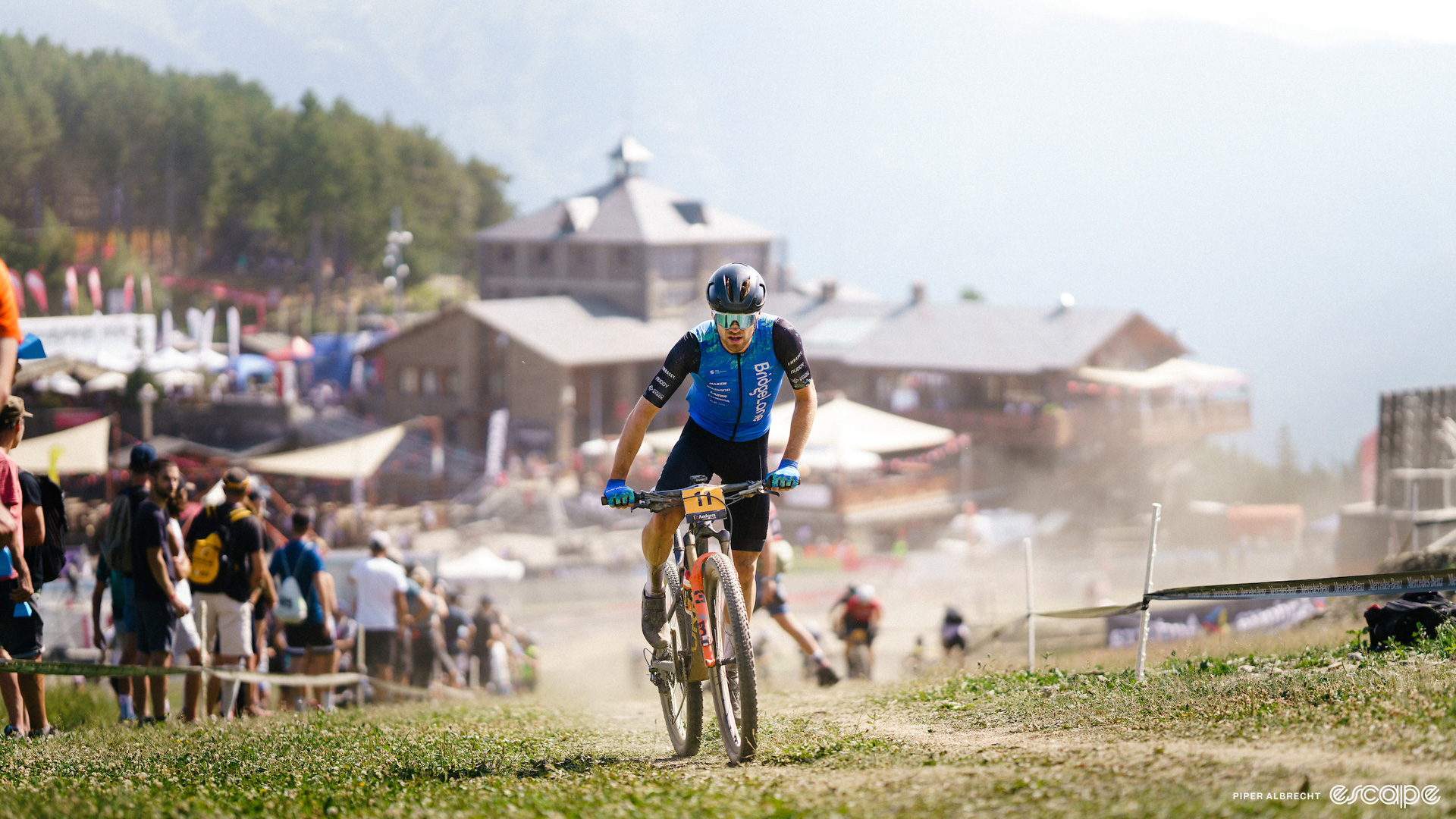
So with Lenzerheide this weekend, what are you expecting going into that race? And what are you hoping for?
Yeah, so I’ve bumped the ranking up; I think I’m sitting somewhere in the top 55 at the moment. So that’s come up a lot. As an Australian, the rule is usually that, for a good race, you need to be moving up and I think usually 15 spots is about the benchmark. So if I can move up 15 spots from my starting position that’s great.
At Lenzerheide the start loop isn’t great for moving up. It’s relatively narrow, and generally it just backs up and you stay where you were. So I think it’ll just be a race of attrition, just pick people off as you go.
What’s the course like and how does it compare to Nové Město, for example?
It’s a proper mountain biker’s course. Obviously, it’s Nino [Schurter]’s home ground. There’s still some straight power climbs; you’ve got some un-technical stuff where you can put the watts down. But then there’s a lot of rooty sections. It’s forecast to rain, I believe, so Lenzerheide gets pretty interesting in the wet.
Europe’s pretty infamous [for when a bunch of riders ride a course, they] take the skin off the roots on the course. And then they just get turned into what we call sniper roots. And it can get pretty hectic out there then, especially with 120 riders on the course. So I think it’ll just be about staying upright if it rains, and trying to put the pressure down where you can. But yeah, it’s a really nice course. Quite punchy. You’ve just got to hold the pressure on everywhere.
Will you go to the other World Cups later in the season?
Yeah, so at the moment, the plan is to only miss Val di Sole [in Italy, on July 2 – ed.] which is in a few weeks. So I’ll do Lenzerheide, Leogang [Austria, on June 18 – ed.] and that’ll be seven races in six weeks, and then I’ll go home for six weeks. I’ll run back to Tassie and see my partner and go back to work, earn a bit more money so that I can afford the next block. And then I’ll jump back and do all the training of course and build the form up for Worlds [in Glasgow in early August – ed.]
What do you do for work?
I work at Sprung, a bike shop in Launceston.
How long have you been there for?
Probably 10 years nearly? I got a kind of unpaid gig there when I was about 12 or 13 to pay off a bike that my dad bought at the time. And then it’s progressed from there. So any mechanical knowledge I’ve got I learned from those guys.
What does a good 2023 season look like for you?
For me, my Australian season was obviously excellent. I only lost a few races in Australia. And so for me, the season’s been a success already. I wanted to tick off the elite Australian title ever since I started mountain biking and so to do that alone in a season is an incredible achievement that I’m pretty stoked on.
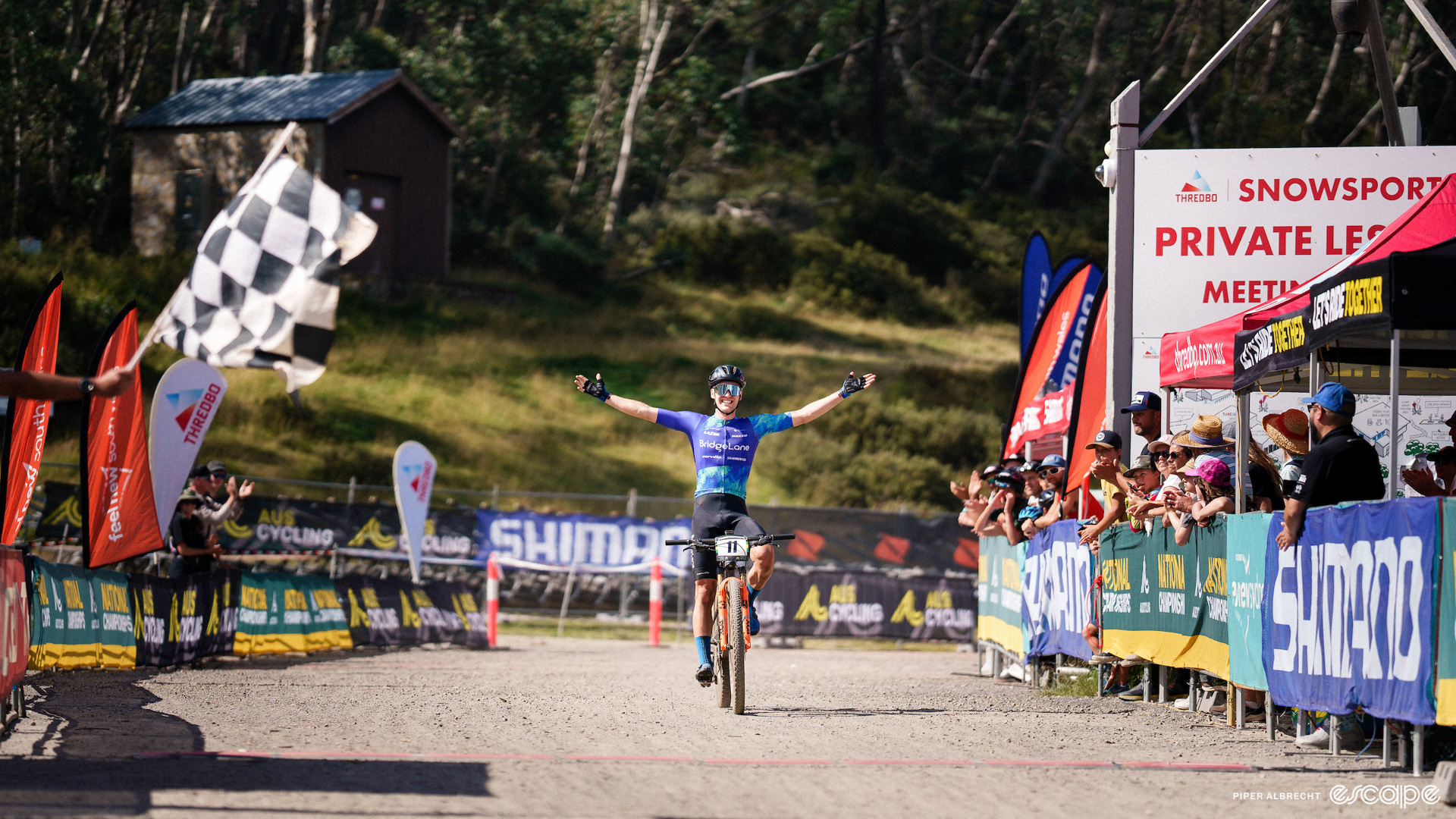
And as far as international racing goes, ticking off a spot for Australia at the Olympics is really important this year. We don’t actually have a spot for Australia yet. And that’ll come at World Champs if it does because I don’t think we’ll do it off country ranking by bringing our points up.
So it makes World Champs a pretty important race for Australia. So if we can do that, that’ll be great. And then otherwise, just moving up a bit, finding my feet. There’s no real pressure on results at a World Cup this year. That’ll come next year when Olympics rolls around and people start really trying to find some form.
Australia getting a spot for the Olympics is based on UCI points too, right?
Yeah, they [the UCI] love to make it complicated. It’s based around the top three riders from your country and how many points they have. At the moment, the top 18 countries get a spot and the top nine get two, and Australia’s ranked around 23rd at the moment.
We were sitting 19th last year but obviously I’m the only one racing over here this year and I will probably lose some points throughout the season as it progresses. In the step up to elite you don’t get as many points as you would have in an U23 World Cup. So I think Australia will just keep slipping back a little bit.
But as far as a singular result goes, I think our top three riders can pull something really good at Worlds and that’s where the other two spots are. The top two countries at Worlds that don’t have a spot [at the Olympics], there’s a spot available there.
How many Australians can enter the world championships?
Depends how many they [AusCycling] select. It’s usually around three and that’s all you need. But potentially, they’ll send as many as five even. Just depends what the selection criteria are for the year and who really wants to come. It’s a long trip – it’s in Scotland this year. And if you’re not racing other races, that’s a long way to go just to do one race.
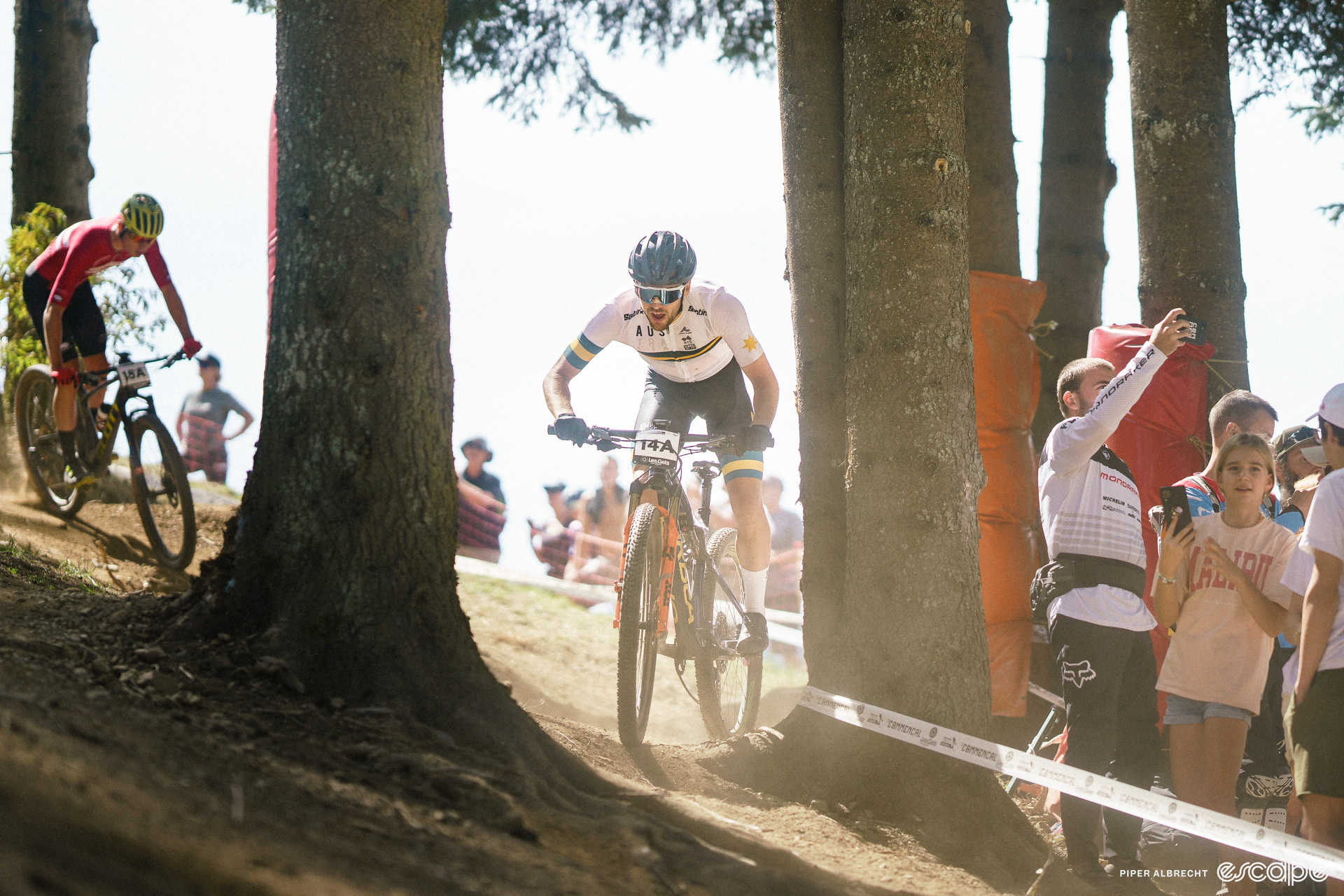
Would you like to see more Australians racing in Europe?
Yeah, of course. We had the juniors here for the first block and that was awesome just to see other Aussies at races and see the juniors progressing. They actually had some of the best races we’ve seen for junior riders in a long time. I don’t believe a junior has ever won a race in Europe and they went 1-2 at a Swiss Cup which was incredible.
So I think there’s a lot of talent there that will progress through the ranks, and if we’ve got the support in Australia, then they could be really good riders in future.
You talked about how there’s no pressure on you this season – do you have a sense of what you’d like to get out of next season?
Yeah, as I said, this season will be a bit of a wayfinder so that’ll give me a good idea of what’s achievable for next season. But goals-wise it’d be great to ride a top 20 at a World Cup within the next year. That’d be excellent. And then, I think if I can start working my way to be consistently in the top 30, that’d be great as well.
But yeah, like I said, there’s a lot of depth in the elite World Cup so you can be 1% off for the day and you just start riding backwards as soon as the race starts. So we’ll see how we go there.
What do you need in terms of support to help you take that next step up? What sort of support do the top riders have that you don’t?
Of course, all the top riders are professional, and that does make a difference not having to go home and work in between blocks – they can just train and recover a little bit better. And then I think just having a soigneur at a race makes a big difference.
They’re reasonably stressful weeks, just jumping through all the hoops to get your registration – there’s always a two- or three-hour line and it’s usually in the sun, to get all your number plates. Just stuff like that that the professional riders don’t need to do – they just think about riding their bike each day.
I bring my toolbox over each year and do all my work on my bike. So having someone just to keep that fresh is always nice. And just little things like cooking during the week. A regular week it’s not a big deal but a World Cup week, you want to save all your energy for the race; they’re a reasonably intensive hour-and-a-half block. So you need all the willpower you can to get through it.
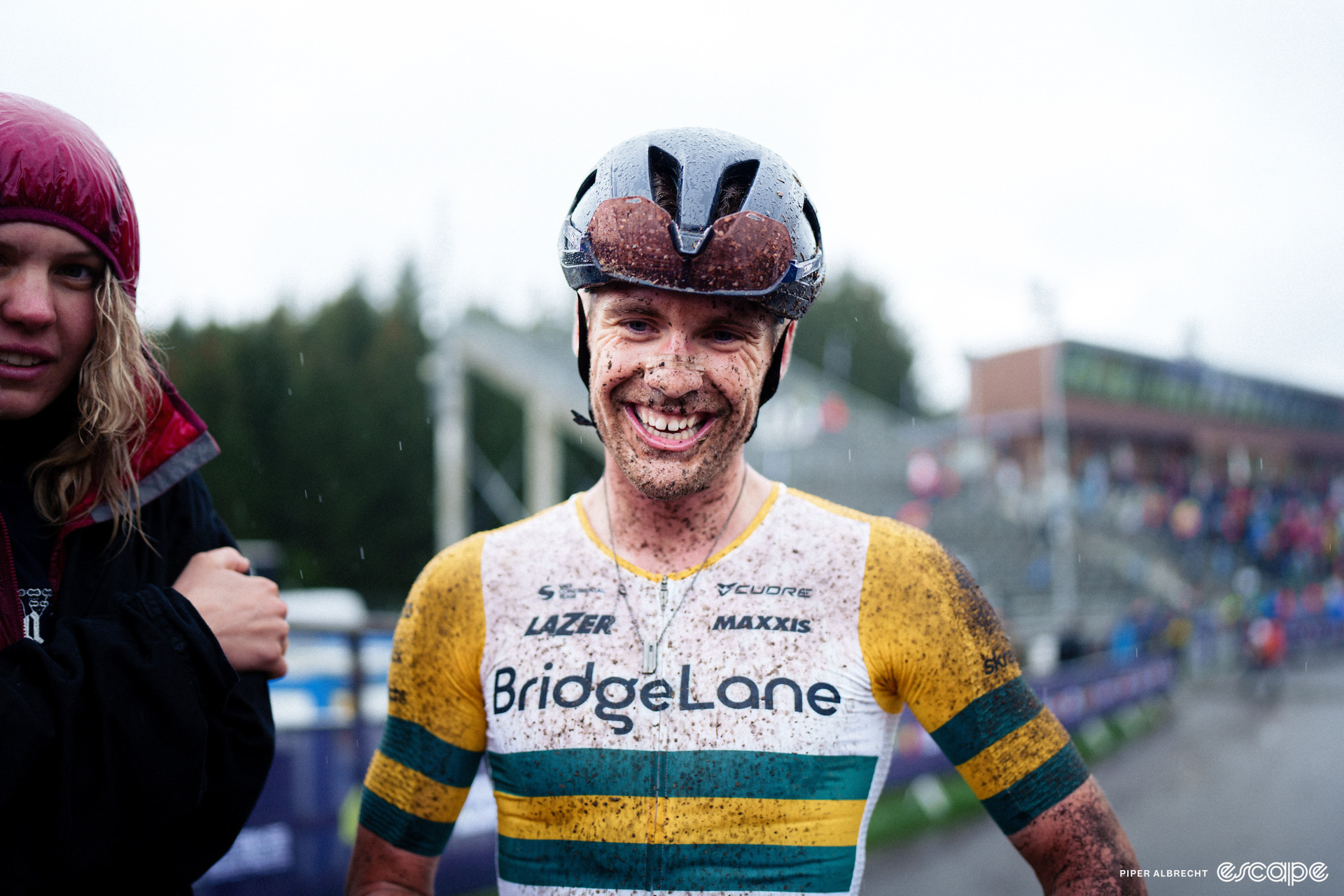
And so I guess turning pro is a big goal then?
Yeah, of course. I mean, I think that’s the goal for any cyclist, to have their bike be their job. I was close last year; I had some really good results and a lot of communication with teams. But it is a challenge for a team to sign an Australian; it’s a big investment. We have to travel a long way each year and the costs for a team to sign us are higher than a European. So generally, if there’s a European in a similar league to us, they’ll pick them.
I think it’s just about networking at all the races and being approachable really. A lot of the teams on the mountain bikes, they look less for results and more for fit in the team and they kind of build a community in the team that means they all race well at an event.
That’s all the questions I had. Was there anything you wanted to add? Anything that’s on your mind?
I guess for a long time I probably didn’t think of myself as a talented athlete. Especially as a young rider, I had some pretty quick South African boys as juniors that used to roll me at every race in Australia. Obviously, one of them’s gone professional, Matt Dinham who’s now with DSM. And Cam Wright was the Junior World Champ. [both Dinham and Wright spent much of their childhood in South Africa, before emigrating and becoming Australian citizens – ed.]
But I think having those riders around makes you a lot quicker and more resilient. So I think it’s just always worth reminding the juniors out there that if they’re winning in Aussie, and they come over to Europe and they get smoked, it’s not the end of the world. It happens to all of us. It takes time to find your feet for juniors, or any riders really.
Just keep at it; you just keep improving. You never know where you’ll get to until you get there, so you may as well just keep trying.
Thanks to Dave Rome for his editorial assistance both before and after this interview.
What did you think of this story?
